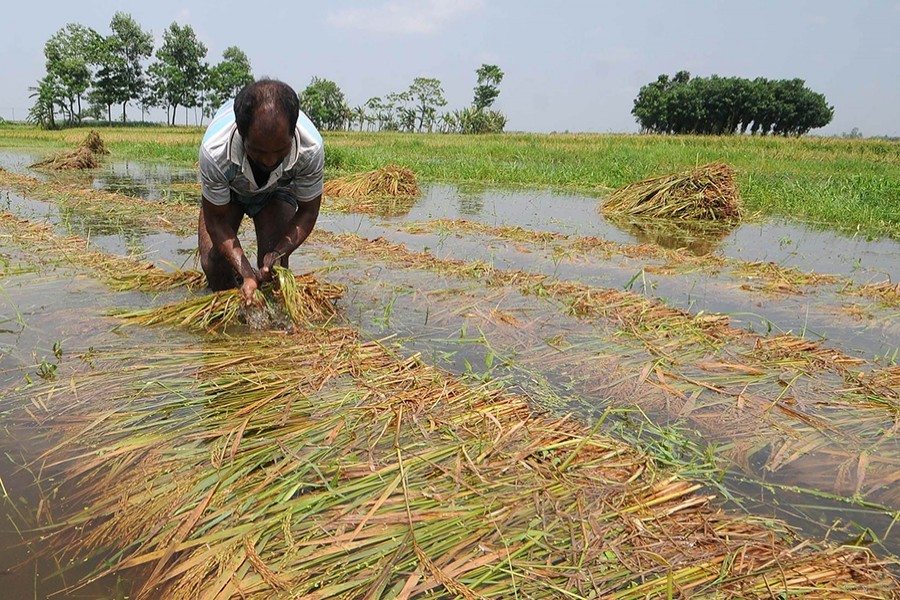Over 850,000 people in the coastal region have been benefitted from climate-resilient smart farm technology, pure water and sanitation as well as a linkage to productive value chain from the World Vision Bangladesh's Nobo Jatra Project.
Many farmers in disaster-prone four upazilas in Khulna and Satkhira districts have also been able to raise production by four times through using modern climate-smart agricultural technology under the ongoing seven-year-long project funded by the USAID.
The information was disclosed at a workshop titled 'A Multi-Sectoral Integrated Food Security Program Enhancing Community Resilience in South West Bangladesh: Lessons-Learned from USAID - Nobo Jatra Project', held at a city hotel, organised jointly by the World Vision and Ministry of Disaster Management and Relief (MoDMR) on Monday.
World Vision and MoDMR have been implementing the project worth Tk 7.12 billion (US $ 86.8 million) from 2015 to 2022 at Dacope and Koyra in Khulna and Shyamnagar and Kaliganj in Satkhira districts--- most cyclone and salinity prone areas of the country with the goal to improve 'gender equitable food security, nutrition and resilience for vulnerable communities'.
The projects' 2015 to 2020 outcomes were presented at the workshop by Alex Bekunda, chief of party, Nobo Jatra Project.
The presentation revealed the project benefitted nearly 0.2 million households and 0.85 million people.
Nearly 0.149 million people have got access to safe drinking water and 0.487 million people have gone through positive social behavioural change over hygiene issues and nutrition.
Nearly 0.184 million women have also been benefitted from the project as 59,186 of them have been able to raise their access to a productive economy in terms of assets, income, livelihoods and financial services.
Among them, 23,462 pregnant and lactating women have been under nutrition safety-nets, 18,270 have graduated from extreme poverty to sustainable livelihood.
Some 30,867 farmers, however, have adopted climate-smart agriculture and improved production technology.
However, the World Vision shared alignment and contribution to the Sustainable Development Goals (SDGs) and the government's priorities in the 8th Five Year Plan.
Dr Enamur Rahman, the state minister for disaster management and relief, said it is very important to share learning with a wider audience, including 'the government', so that we are able to sustain and build upon critical services that enhance the health and nutrition of Bangladeshis' - particularly those in hard to reach areas.
The government will continue to support the outcomes and seek to build upon the results and services achieved by USAID projects such as Nobo Jatra, Mr Rahman added.
MoDMR Secretary Md Mohsin said the Nobo Jatra project would be expanded to other disaster and poverty prone districts if there is a good prospect.
Prof Rashed Al Mahmud Titumir of Department of Development Studies (DDS), Dhaka University, put high emphasis on resilience for the community in the salinity and disaster-prone coastal districts.
Suresh Bartlett, national director, World Vision delivered both the welcome and concluding address.
Dr Prof Abu Eusuf, DDS, DU, Atiqul Huq, director general, Department of Disaster Management, Chandan Z Gomes, senior director, Operation and Programme Quality, World Vision, and Ellen D Guzman, country lead and director, Disaster and Humanitarian Assistance, USAID also spoke, among others, at the workshop. Kathryn Stevens, mission director, USAID also participated in the workshop virtually.


